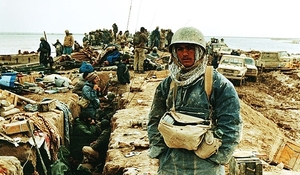Deterrence, Coercion, and Escalation Management vis-a-vis Iran: Lessons From Past Confrontations

“Deterrence, Coercion, and Escalation Management vis-a-vis Iran: Lessons From Past Confrontations“
Speaker: Eisenstadt, M. (The Washington Institute for Near East Policy)
Date: 28 June 2019
Speaker Session Preview
SMA hosted a speaker session presented by Mr. Michael Eisenstadt (The Washington Institute for Near East Policy) as a part of its SMA CENTCOM Speaker Series. During his presentation, Mr. Eisenstadt discussed Iran’s strategic culture and ways of war. He explained that a nation’s strategic culture is shaped by its decision makers’ perception of the world and the actions they take to achieve their goals. Mr. Eisenstadt then stated that US media is currently fixated on the idea of a full-scale war with Iran and the potential for escalation; however, this focus is unwarranted because one of Iran’s primary goals, based on historical precedents such as the Iran-Iraq War, is to avoid major conflicts. Furthermore, Iran deployed as few troops as possible during the Syrian civil war and offloaded as much risk and burden onto Shia militias and Russia. This sort of behavior, Mr. Eisenstadt explained, is not representative of a nation that embraces conventional warfare. He then stated that while one should never be cavalier about the possibility of war, it is likely that this situation will not escalate to a full-scale confrontational war. He cited that over the past 40 years, Iran has killed about a thousand Americans and hundreds of Israelis, yet Iran has not engaged in war with either. Tensions may escalate. Tehran may try to test or circumvent our redlines and/or engage in tit for tat responses, but Iran will still remain at a level below conventional war, according to Mr. Eisenstadt. Furthermore, Iran has historically paced its activities in order to limit the potential of escalation and adhered to both proportionality and the calibrated use of violence. Mr. Eisenstadt then provided a series of historical examples that reveal Iran’s strategic culture and goals. He also stated that Ian has recently departed from its historical precedents in a few ways: 1) it shot down a strategic drone on 20 June, 2) it has gotten more proxies involved than ever before, and 3) the Red Guard is playing a larger role than it has in prior engagements. To conclude, Mr. Eisenstadt offered a series of policy implications and recommendations for US decision makers.
Speaker Session Audio File
Download Mr. Eisenstadt’s Biography
His relevant paper is available at https://www.washingtoninstitute.org/policy-analysis/view/past-u.s.-iran-confrontations-hold-lessons-for-current-crisis
Comments